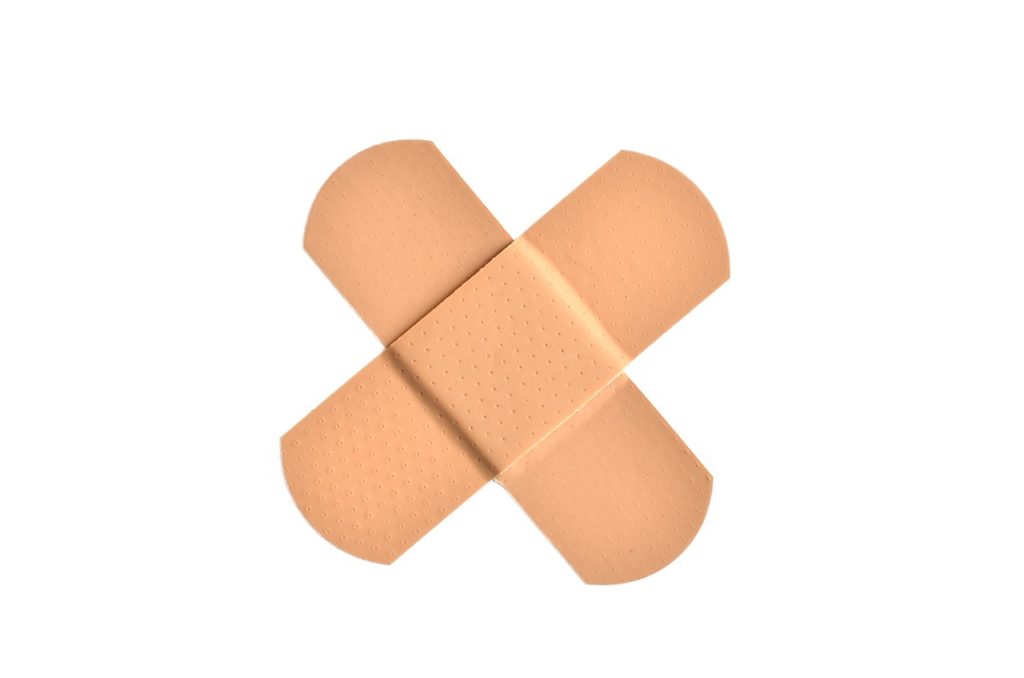Table of Contents
When you’ve been struck with an injury, it turns your whole world upside down. Recovery is a long and difficult road. You’ll need to go step and step and follow your doctor’s advice. Luckily, there are multiple routes to recovery and multiple ways to assist that process. If you want to heal fast and not take the risk of re-injuring yourself, then here are five tips that you should consider.

Don’t Overdo Things—Slow and Steady
There will be good days, and there will be bad days. On those days when you do have a bit more energy, don’t try to overdo things. Remember the old saying that “slow and steady wins the race.” You must pace yourself and not clean the entire house just because you have a burst of energy. If you do too much one day, you may be out of commission for the rest of the week.
Your body is healing, so take your time and gradually increase your chores and responsibilities. Listen carefully to your doctor’s advice, and exert yourself as necessary.
Choose Healthy Foods
When you are relaxing and trying to heal, it seems only common to develop the couch potato lifestyle. However, you must eat healthy to fuel your body with the nutrition it needs. You can’t expect your system to rejuvenate on candy bars, chips, and soda. You need greens and protein to help kick your healing properties into overdrive.
Healthy fats, from nuts, avocados, and seeds, can give you a lasting source of energy, which will give your body deeper reserves of power. Recovery is hard work and you’ll need it. Antioxidants, from fruits such as grapes or berries, can help rebuild your body.
Most of these fruits also contain lots of vitamin C, which heals your soft tissue more quickly. Also, make sure you drink plenty of water. It’s very easy to become dehydrated, which can bring along another set of problems.
Choose the Right Supplements
Your medical practitioner may recommend supplements that the body can use in its healing process. If you hear about something you would like to try from a friend or read about it online, be sure to call your doctor before adding anything to your daily regimen.
A multivitamin should have everything you need, but some people may be deficient in things like vitamin D, iron, or calcium that aren’t included in some multivitamins. The trick is to find the right balance as too much of certain vitamins and minerals can actually be harmful. In some cases, lab work may be necessary.
Exercise
It’s important to keep moving or doing some activity regardless of your injury. You can slowly build up to more strenuous exercises. If you do too much too quickly, then it could send you back to square one. Talk to your doctor about workouts that you can do that will help and not hurt your injury.
Even if you can’t exercise, you should take the time to go outside and get some fresh air. Get your family and friends to talk a walk with you, with a wheelchair if you can’t walk.
Your doctor can help you know what resources are available to make your home more accommodating.
Related:
Keep up With Physical Therapy
Even if you attend an injury rehab clinic, you must still do some work at home after you are released. Choose low impact movements that won’t hurt joints. The key to success is persistence. If you are frustrated with your limited range of motion or diminished strength, just remember that you are rebuilding yourself, and that takes time and dedication.
Keep a journal or a chart to track progress and serve as a daily reminder to stay on target. Checking off a box after your daily exercises can be the simple reward that keeps you at it and on a regular schedule.
Rest and Relax
Sometimes recovering patients need to be reminded to let their bodies rest. Use ice packs wrapped in a cloth to minimize swelling. Elevate throbbing joints. Take nice, warm showers to allow your muscles to relax.
While in recovery, you might need additional sleep each night as it can take a lot of energy out of you. Plan on getting 8-10 hours a night, plus short naps if needed throughout the day.
Listen to Your Body
Our bodies are amazing in that they can bounce back from major injuries and illnesses. That being said, you need to listen to your body while you are in recovery. Recurring aches and pains may mean you need to immobilize your injury.
Ask your doctor or your physical therapist if think you are experiencing more pain that anticipated. Any nausea, fever, or weight loss should be monitored closely.
When you are already injured, these symptoms can point additional complications. Keep in touch with your doctor if you think anything is out of the ordinary. It’s worth a call, even if you don’t think it means anything.
Keep a Positive Attitude
It’s easy to become melancholy when you’re down and out. However, you must keep a positive attitude. Did you know that if you have a positive mindset that you can recover quicker than if you’re depressed and negative? Focus on your little victories and keep pushing yourself towards total wellness.
It can be very difficult to focus on the broader picture, when your injury impedes your ability to take comfort. Having a therapist, or a group with members who are also recovering from an injury, to talk over your problems with, can help you find companionship in your struggle.
Having friends who will exercise with you or simply spend time with you at home can help you enjoy your life and see what lies beyond your recovery.
Related:
Set Goals and Monitor Your Progress
Soon you will be back to work and your old routine. However, to accomplish what you need to do, you must set goals for yourself. Keep a chart and mark off your accomplishments as you reach them. It will give you a visual aid to show your progress, and a chart can help you see how far you’ve come.
You must stay focused and motivated during this time, or depression can easily sneak up on you. Talk with friends about these goals so they can encourage you if you falter. Don’t give up if things take a little longer than you expected.
It can be difficult to know how exactly your body will recover. Adjust your goals as time goes on and use them as a means of encouragement, rather than disappointment.
Keep Your Mind Occupied
Working towards your recovery goal can be a great motivator, but it can also lead to stress. You need to find ways to keep your mind busy so you aren’t constantly dwelling on your injuries. There are many, many things out there to fill your time with positivity and provide you a well-deserved break.
Online video games can give you a community to be a part of without leaving home. Picking up a few new books can let you immerse yourself in other worlds. Puzzles, painting, and writing are all great ways to keep your hands and your mind busy.
You can also teach yourself new skills on sites like YouTube, or you can take an online class. If you are stuck in bed for long stretches of time, try listening to a podcast. The important thing is to find something that gets you excited and gives you a sense of fulfillment.
Reach Out to Your Support System
Make sure that you have someone there for you during your recovery. Tell them you would appreciate it if the check-in from time to time. It might feel awkward at first if you aren’t used to relying on others this way, but the simple fact of knowing you aren’t alone can do wonders for a person.
Isolation can lead to depression and missed recovery goals. There are support groups for every sort of injury that you can join. If that isn’t for you, there are online communities and chat groups made to help people going through hard times regardless of your condition or location. There is always someone out there who is willing to show you compassion if you are willing to put yourself out there.
Cultivate a Positive Environment
The difference between healing in a healthy home and a cluttered home has been studied many times. It can not only benefit your emotional health but your physical health as well. If your injuries make it hard to continue with your housekeeping, don’t be shy about asking friends and family for help with dishes, dusting, and vacuuming.
Keeping the clutter out of sight allows your mind to rest. Additionally, adding elements to your home that makes you happy can do wonders. If you like potted plants, treat yourself to a new plant. Put up pictures of loved ones or past memories that make you happy. If there are any eyesores, like stained sheets or broken blinds, make an effort to get rid of them.
Life’s traumatic events happen to everyone. These incidents always seem to occur when you least expect them. The important thing is to allow your body plenty of rest to help recuperate, but you must eat healthy, exercise, and keep a positive mindset.
Recovery is a gradual process and it will take time. Have patience, get the support you need, and you’ll more likely have a smooth recovery. Soon, you will be back to your old self.















